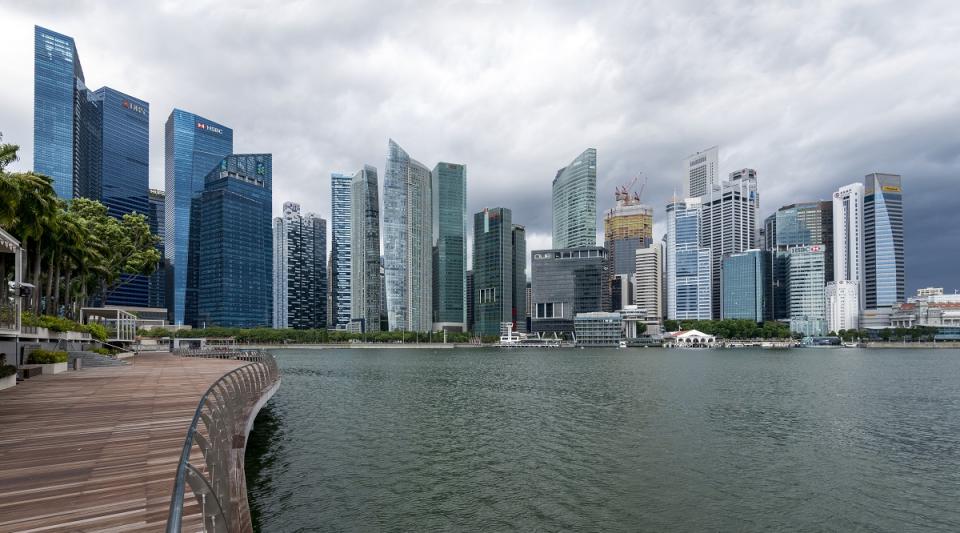Global economy could escape recession despite weak growth, while China’s recovery provides lifeline for APAC

Despite dropping sharply among financial professionals, global confidence levels remain above its low-point in 2020.
Economic confidence among finance professionals and accountants in North America has dropped to levels seen during the height of the Covid-19 pandemic in 2020, according to the Institute of Management Accountants (IMA), which has just released its quarterly Global Economic Conditions Survey (GECS) report for 2Q2022.
The survey, whose results suggest that weak worldwide economic growth looks likely for the rest of 2022, took place between June 8 and 17 with 949 responses from the Association of Chartered Certified Accountants (ACCA) and IMA members, including over 100 CFOs.
Although dropping sharply among financial professionals, global confidence levels remain above the low-point reached at the height of the Covid-19 pandemic, suggesting that a global recession could be avoided.
IMA is one of the largest associations focused on advancing the management accounting profession, while ACCA represents a global community of 233,000 members and 536,000 future members based in 178 countries and regions.
The GECS has been conducted for over 10 years, with indices that serve as lead indicators of economic activity and provide valuable insight into the views of finance professionals on key variables, such as investment, employment and costs.
Its latest results point to a “decisive deterioration” in global economic outlook due to the surge in inflation across much of the world, exacerbated by the effects of the war in Ukraine.
“Post-pandemic recovery has now given way to negligible economic growth, elevated inflation, and extreme uncertainty,” says Jamie Lyon, head of skills, sectors and technology at ACCA.
“The war in Ukraine has given inflation a further boost by pushing commodity prices higher. But inflation was already high and rising before the war started in February: a strong rebound in demand fuelled by a massive monetary and fiscal response to the Covid-19 pandemic had run up against supply shortages, resulting in a surge in price pressures,” he adds.
These sentiments of weak growth for the rest of this year are in line with the adjusted forecast by the Organisation for Economic Co-operation and Development (OECD) which downgraded its global gross domestic product (GDP) forecasts to just 3% this year — 1.5% points weaker than the projected figure in December 2021.
The two “fear” indices, reflecting the level of concern that customers and suppliers may go out of business, both edged slightly higher in the 2Q2022 survey — still higher than pre-pandemic levels but lower than the extreme levels seen in 2020.
The largest fall in confidence occurred in the Middle East, a region more exposed to trade with Russia and Ukraine, while Western Europe and North America recorded especially large falls due to big jumps in inflation in recent months, with the latter falling back to confidence levels seen during the height of economic uncertainty in 2020.
Elsewhere, the falls in confidence were still significant, but more modest. Survey results anticipate that due to the slowing of growth in advanced economies where stagnation is possible, the APAC region will suffer from reduced demand for its exports.
On July 14, Singapore's Ministry of Trade and Industry (MTI) estimated that the country's q-o-q GDP saw zero growth in the second quarter, reflecting weak economic growth at home.
Today, the Monetary Authority of Singapore (MAS) announced a net loss of $7.4 billion for the FY2022 ended March 31, attributed to inflationary pressures and tightening monetary policies globally.
In spite of this, the report highlights that accounting and finance professionals are more confident in the APAC region relative to other major regions — confidence in the region fell by the least while there was a slight increase in the orders index, with APAC being one of only two regions to record a rise. This observation is attributed to China’s gradual reopening with major hub Shanghai exiting its strict lockdown.
While the overall outlook has darkened, the drop in confidence is much greater than the reported drop in orders — a lead indicator of economic activity — which are above their long-run average.
The employment index is also well above its long-run average, despite dropping in 2Q2022. Jobs markets are tight and employment is rising in many economies, providing some offset to the effects of high inflation on real incomes.
On the other end of the scale, supply shortages and supply chain issues have remained the highest ranked risk for the third GECS in a row. Close to 60% of respondents perceived supply shortages and supply chain issues as the highest risks, followed by the increased interest rates in response to higher inflation at 55%.
Loreal Jiles, vice president of research and thought leadership at IMA, says: “High inflation is resulting in falls in real disposable incomes putting downward pressure on private demand, especially household consumption. Prices of both food and energy are rising rapidly. The result is a cost-of-living crunch on low-income households in advanced economies and across virtually all low and middle-income countries, where these two categories account for a high share of spending.”
“Risks of a global recession have increased but our central case is that growth will be positive if rather weak. Employment growth may support total consumption. Nonetheless, with the exception of the Covid recession of 2020, we expect global GDP growth this year and next will be the weakest since the Global Financial Crisis of 2007 to 2009,” Lyon concludes.
See Also:
Click here to stay updated with the Latest Business & Investment News in Singapore
Get in-depth insights from our expert contributors, and dive into financial and economic trends

 Yahoo Finance
Yahoo Finance 